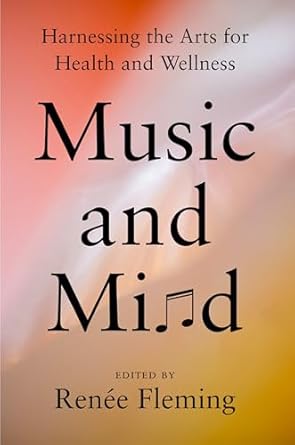
A collection of essays about the health benefits of music and the arts.
Editor Fleming, an acclaimed soprano and arts/health advocate, introduces readers to current research and practices related to the healing power of the arts. Among the contributors are scientists from leading research facilities, practitioners, educators, and musicians and writers, including Richard Powers, Ann Patchett, Rosanne Cash, Zakir Hussain, and Yo-Yo Ma, who share their personal experiences. Many readers are aware of the power of music to reduce stress. However, there is an interesting misconception that classical music is superior to other genres when it comes to relaxation. While calm music is “often associated with relaxation, a wide variety of music styles and ways of engaging with music can promote stress relief,” writes Joke Bradt, a board-certified music therapist. While studies show that introducing music to children at an early age improves cognitive and brain development, as well as language skills, some school districts are still apprehensive about implementing music programs. Indre Viskontas, director of the Creative Brain Lab at the University of San Francisco, clearly demonstrates why they shouldn’t be hesitant: “Instead of taking time and resources away from the core curriculum, music programs in schools motivate kids to attend, and drive up graduation rates, GPAs, and good behavior.” The contributors also provide concrete evidence to support the ways music therapy and art-based interventions can assist patients with dementia and other debilitating conditions, including Alzheimer’s, PTSD, Parkinson’s disease, and multiple sclerosis, as well as depression and loneliness. While some of the topics repeat across the essays, they are no less compelling, and most of the pieces complement each other. Francis S. Collins, the former head of the Human Genome Project, provides the foreword.
A must-read for anyone who questions the health benefits of music.
Publication: Kirkus Reviews